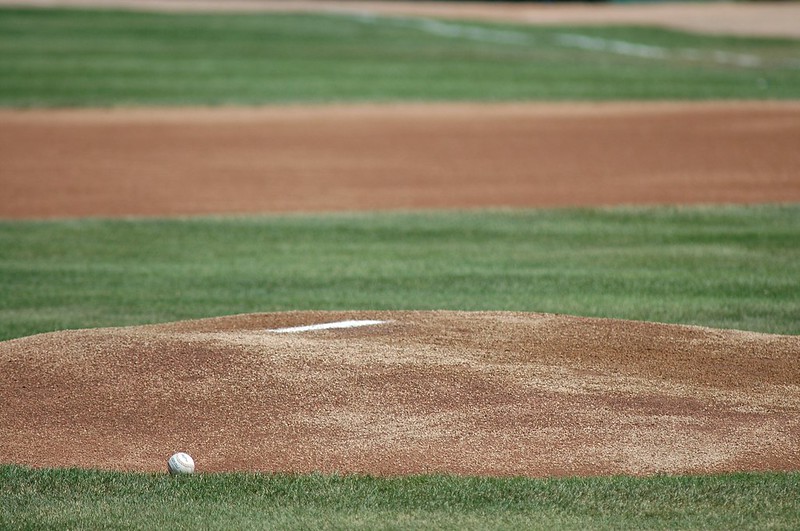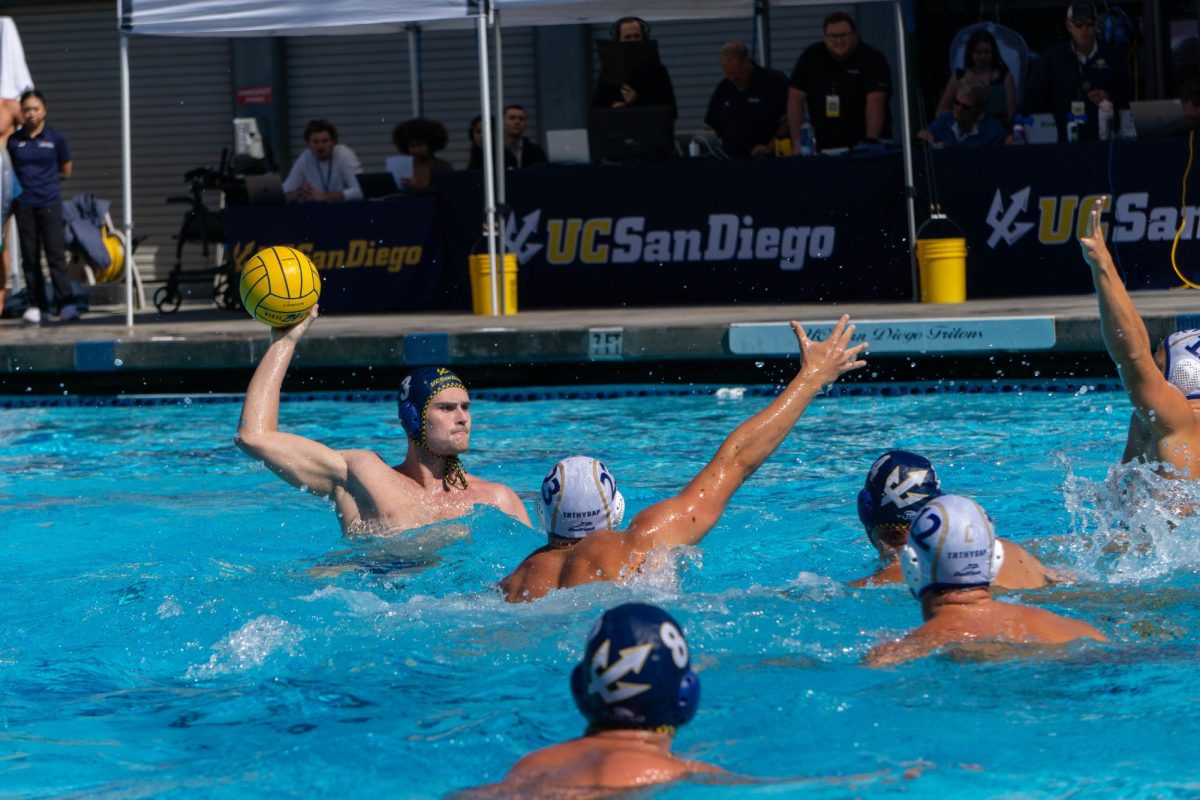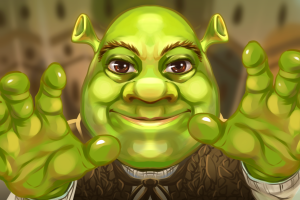Talking Baseball: Boring Sport or Beautiful Game?
May 1, 2023
The confusion that I feel when watching grown men cry over sports is unparalleled. It’s almost funny. These players, whom the average viewer has never even met, are evoking such intense emotion over a game. A literal game. Children play games for glory or prizes or ultimate bragging rights. Isn’t it funny that 50 years older, such feats still have the same allure?
Former Sports Editor Praveen Nair graciously offered to give me a rundown of baseball, one of his favorite sports and one of the few that I have had experience with, answering all of my questions and ultimately trying to convince me that it is a sport worth watching.
We sat down in The UCSD Guardian office, him with his laptop at the ready with his long and categorized conversation outline that he had prepared prior, and me hoping to stay focused and awake during what I was (honestly) preparing for to be a snoozefest of a conversation (I was happily proven wrong).
After an hour and a half of prodding Nair with confused remarks and blank stares, about half of which was met with passionate ranting, here’s the condensed and usable version of our conversation.
…It’s just boring:
ZARA: When I’ve watched baseball games, it’s always been in person. I used to go with my family. But I think it would lose my attention very quickly. Yeah. But then you know, when you hear people cheering, then you kind of get back into it, but not really knowing what’s going on.
PRAVEEN: My ultimate case for that, though, is the vibes of baseball are a lot more chill than any other sport. I don’t know if you had fun, but I think it’s fun to go to a baseball game and not follow the baseball. I don’t think that’s true in any other sport. Right?
ZARA: But like, if you’re saying that ‘yeah, baseball is nice to watch because you don’t really have to pay attention’ like, if you don’t have to pay attention, what is the point?
PRAVEEN: I think that’s a great question, especially because I think my answer to it is like, kind of, that’s part of it. There’s 162 games in the baseball season. Each team plays 162 games — 81 at home, 81 away. Okay, so there’s, there’s a lot of baseball, and I think that is part of it. [In football, there’s] 16 in a season, every single one matters, right? Baseball, you can lose like 55 games and be the best in the league. So I think that the fact that you don’t always have to pay attention. I think that’s what makes it kind of warm and inviting in a sense. It’s not about tension.
ZARA: I feel like baseball is one of those sports where you bring a family, you bring your small kids, and you don’t see those crazy people like in football stadiums or even soccer stadiums, like, you know, crying or screaming. I mean, I’m sure you do have those fans in baseball, but it does feel like, this might be a weird comparison, but I guess it’s the San Diego of sports. Like it seems more laid back in that way. I don’t know.
PRAVEEN: Yeah. It definitely is more laid back. To be fair though, I will retract one thing I said, because playoff baseball is totally different. Like, playoff baseball is tense. Because baseball, I think, leads itself to tension very well. But like the regular season, you can watch while you’re doing something else you like. Some people probably watch 162 games a season. I don’t feel like they need to. And you can have it on the radio. It’s a very good radio sport.
PRAVEEN: One of the things that I think makes baseball unique, I don’t know if you knew this, but every field is different. Every single stadium.
ZARA: Oh?
PRAVEEN: Yeah, they’re all shaped differently. There’s all kinds of weird stuff. Every basketball court is the same, every football field is the same, every single baseball field is completely different … For example, the Red Sox have like a 37 foot wall called the Green Monster in left field. So you’ve got to get over it. It’s short, but you’ve got to get over it. Um, the Astros in Houston, they used to have something called Tal’s Hill, which was an incline, like you were in center field and then it just went up.
ZARA: That is really interesting. So like a lot of people would, like you said, travel around to different stadiums to see. I mean, I guess that makes sense as to wanting to go see the sport live there versus watching it on TV, to see the different stadiums in person. I get the appeal of that particular portion.
How can you not be romantic about baseball?:
ZARA: But, off on a tangent question, why did you choose baseball to talk about today?
PRAVEEN: I just like sports not just for like the game itself, but the entire culture is fascinating. I feel like the pitch with baseball is, baseball has been played in America for like, 150 years. It mirrors American history so well. I mean, not just from like civil rights stuff and the color barrier in baseball, but like, the 1919 World Series was fixed with a gambling syndicate, the players in the ’80s were all doing coke. The players now are there on Twitter. I don’t know. So I feel like it’s the most American sport. I feel like it traces American history very well.
[Praveen proceeds to go off on a tangent about San Diego hitter Ted Williams, who was drafted into the military in the middle of his career]
PRAVEEN: There’s something undeniably, like, magical about baseball, like magical, spiritual. It’s why men cry when they see Field of Dreams. Like it’s there. And I can’t … I can’t transmit it to you, but it is there.
ZARA: Do you think that carries when you watch a baseball game on TV versus being there in person versus listening to it on a radio?
PRAVEEN: I think it does transmit, because one of the things about baseball is like most of the time baseball isn’t happening. When they’re one strike away from winning or losing and then you just wait … There’s this quote from “Moneyball” that everyone I know who loves baseball knows, where Brad Pitt says “how can you not be romantic about baseball?” The vibes and the history, they all kind of come together to create the most interesting surrounding culture.
Logistics:
PRAVEEN: If there’s two words that I want to transmit through this entire conversation, those words are Shohei Ohtani. He’s probably the best thing to happen to the sport in my lifetime. He hits and he pitches, and he pitches and he hits.
ZARA: Like in the same game, or … ?
PRAVEEN: So now pitchers will have like a designated hitter, because pitchers suck at hitting. But it used to be for the longest time in half of the league, the National League, pitchers did hit and in the American League, there was a designated hitter. Ohtani is his own designated hitter … he actually might be top 10 at both of them. Like it’s insane.
[Praveen launches off on a tangent about his admiration for Ohtani. He also makes me watch a compilation video of a ball hitting Ohtani’s bat, fawning over the click sound that it makes as they collide]
PRAVEEN: I think there is one thing about baseball that I think is interesting is there’s no clock — they just introduced this season a pitch clock, because they’ve been wasting time, they actually dropped the average length of a baseball game by half an hour this season … But still, there’s no time running out.
ZARA: That’s interesting. Still the fact that there’s no clock makes me think like, if I’m at a baseball game, and it’s just dragging on like that, I’d still get exhausted watching that. I think sometimes, at least from my perspective, the appeal of another sport is like there’s a clock ticking. I feel like that almost builds more tension, because then you’re like, ‘oh, they’ve gotta rush against the clock.’
PRAVEEN: This is tension, though. It’s just not timed tension. But there’s tension in every at-bat. You never have to rush down the court and put up a shot. But like, being down to your last strike is tension, being down to your last player is tension, right? And that happens throughout the game.
Concluding thoughts:
PRAVEEN: You know, we went in, I think, a different direction today. This is good, because a lot of the stuff I was trying to find was goofy.
[Praveen tells story of a grown man (a player for the now-Cleveland Guardians) crawling through the ceiling vents “Zack and Cody” style to retrieve a rigged bat that his teammate was caught playing with]
PRAVEEN: All sports require you to make the irrational choice to emotionally tie yourself to a bunch of dudes you don’t know. And I can’t get you past that hump.
ZARA: Yeah, I think that’s where I’m stumbling. I don’t know, I think fan culture can get a little intense when it comes to sports in general.
PRAVEEN: It’s the same as emotional investment in anything; in movies, or TV, or video games or anything. It wouldn’t make you happy if it didn’t also break your heart. Like every year at the end of my team’s season, the 49ers lose every single year. And the Giants miss the playoffs or whatever. When they got knocked out by the Dodgers, I had to watch it in Dirty Birds with a bunch of Dodgers fans. At the end of the day, you’ve just got to pick yourself [up] and say like, “it’s gonna happen next year.”
PRAVEEN: I feel like baseball is more about stories and the stories we make of it than any other sport. I think that I might believe that baseball, other than obvious socio-political stuff, is the greatest story of American history, right? And I think the pitch for buying into baseball is you buy into this, this 100-year interlaced tapestry of all these, these big things and little things. It’s this big, interconnected story that makes the next story so much more valuable. It just has this entire mythos around it. And so it’s hard to sell someone on baseball, the physical game that is played, because that’s like, that’s kind of scratching the surface.
ZARA: When you frame it that way, I have a lot of respect for it. I feel like on a surface level, as someone who doesn’t know much about baseball, you can go to a baseball game, and like, it’s so like, it’s slow. And it’s kind of boring at first, but I feel like you have the time and space to ask the questions ‘Hey, what’s going on? What is it?’ and I think that with a lot of other sports, you need a lot of prep.
PRAVEEN: So what do you think? I don’t think that this is the sort of thing that would make you want to watch baseball. But have I maybe succeeded in making you understand why I and other people care about it?
ZARA: I think so, I think that I definitely understand the appeal, specifically of going to a baseball game in person and kind of like, the atmosphere and the camaraderie of all of that. I think that I don’t know. I think I’m viewing the slowness, the pace of the game in a different light than I was when we started talking. Yeah. I guess like, I can see how there’s like beauty and the slowness and how that — I don’t know, I still stand by the fact that I think that baseball is the San Diego of sports.
[Praveen proceeds to show me one last video, one of the stadium tension at the end of Game 6 of the 2011 World Series in St. Louis, before we conclude our chat]
My Final Thoughts:
Nair very well may have achieved the impossible with me this week — he got me to actively engage in a sports conversation for more than 10 minutes. If you ask any of my friends or family, that’s a rather impressive feat.
I learned a lot about the art of baseball through our conversation, and while not all of it has been retained (the spew of players names that were mentioned went in one ear and out the other), I can confidently say that I understand the mind of a sports fanatic a little more. While I don’t think I’ll be jumping to tune into a baseball game on TV, I could certainly consider going to a game in person again one day. Baseball remains the San Diego of sports in my eyes, but maybe that’s not the worst thing.
This conversation was loosely inspired by the Alice from Queens’ Substack post.
Image courtesy of Joel Dinda of Flickr

















Pedro Silva • Jun 10, 2023 at 9:00 am
“The confusion that I feel when watching grown men cry over sports is unparalleled. It’s almost funny. These players, whom the average viewer has never even met, are evoking such intense emotion over a game. A literal game. Children play games for glory or prizes or ultimate bragging rights. Isn’t it funny that 50 years older, such feats still have the same allure?”
What a tone deaf article. Why is the author so invested in letting us know how much better they are compared to the rest of us? Total disrespect towards the subject at hand.